You can’t.
That phrase doesn’t exist in Pauline Tatum’s special education classroom at Sunset High School — especially when it comes to robotics.
“I think there’s been a stereotype with these kids that they can’t do it, so I’m saying that they can,” Tatum said.
Last week, her special needs students competed for the first time as a standalone team at the Dallas Regional FIRST Robotics Competition in Irving.
RoboFlash 6751 became the first FRC robotics team made up of all special needs students to compete in Texas and one of the only teams in the world. There’s at least one other special needs team of deaf students from the East coast, according to FIRST.
“I think there’s been a stereotype with these kids that they can’t do it, so I’m saying that they can.”
Pauline Tatum
“We’ve had a lot of obstacles. We’ve had some naysayers that say, ‘I don’t think because of their abilities … you sure you want to do that?’” Tatum said.
But, her students don’t give up, she said.
“I see how they want it, but they need that push to get it,” Tatum said.
BUILDING THE TEAM
Last school year, then senior Ivonne Torres had the idea to begin a robotics team exclusively for special needs students.
A group of eight students with varying physical and mental abilities such as Down syndrome, vision impairments, and autism gathered.
They worked alongside the school’s existing robotics teams under the direction of former Sunset teacher Friedrich Elliott.
This year, RoboFlash has struck out on its own and more than doubled in size.
Grants from the Junior Classical League and FIRST have helped them with equipment, which can cost thousands of dollars.
From assembling, designing, and programing to performing test drives — each student does their part.
Operating the robot is just like playing a video game, sophomore Richard Longoria said. And, he enjoys playing video games.
“It feels fun,” said senior Antonio Haddon. “Working with other teams [we realized], we can do that, too.”
Before, Haddon watched as others drove the robot in competition. On Saturday, he was at the controls maneuvering the RoboFlash robot as a defender, so their team allies could perform tasks in the challenge.
“Doing good Tony! Keep going, Tony, keep going!” Tatum said as she jumped up and down peering back at the scoreboard.
“It always starts with one. Someone has to be the trailblazer.”
Lakisha Farrow
In all, RoboFlash had one win, one tie, and six losses during the Dallas Regional. It didn’t score a top placement, but winning wasn’t the whole point.
“They’re already successful because they’ve already proven themselves to show up in an arena where no one ever included them or said that they could,” said Lakisha Farrow, Sunset teacher and RoboBison coach.
She believes showing that despite their disabilities, they could participate will hopefully open the doors for others to follow.
“It always starts with one. Someone has to be the trailblazer,” Farrow said.
CREATING A SPECIAL NEEDS LEAGUE
If Tatum has her way, one day in the future, special needs students will have their own robotics league where even adults can participate similar to Special Olympics.
“I want the special needs league where even though they’ve graduated, they should be able to compete,” Tatum said.
She and others at Sunset started an online petition last year to gain support for a league, but those particular efforts have fizzled at the moment, Tatum said.
Within Dallas ISD, there has been a growing awareness of special needs participation in robotics.
Last month, Tatum and Farrow helped put together a VEX IQ robotics scrimmage giving special needs students at Sunset and four middle schools in the district a chance to compete.
“We want every child truly to have the same opportunity. We don’t want it to be just this group of people, we want it to be every child. Whether or not they choose to do it, at least they had the opportunity,” Farrow said.
She said they are planning to hold another scrimmage in April.
MORE THAN ROBOTICS, IT’S ABOUT THEIR FUTURE
For Tatum, it’s about more than robotics. The activity gives her students exposure to the science, technology, engineering, and math objectives that she believes are lacking in the special education curriculum. It could also be a stepping stone to a future career, she said.
“They get a little vocational training, but I think no one has taken the time and patience to say ‘hey, I’m going to push you out here and I’m going to see what you can do,’” Tatum said.
“Once they graduate, I want them to have a life like everybody else. They are the future engineers, and coders; they can do it.”
Pauline Tatum
Since her students began working with robots, she’s noticed a boost in their confidence and focus levels as well as improved communication and math skills.
When building the robot, they have to troubleshoot as a team, she said.
She hopes they will take the skills they’ve learned and apply them to a job after high school.
“Once they graduate, I want them to have a life like everybody else. They are the future engineers, and coders; they can do it,” Tatum said.
Photos by Heather Noel:
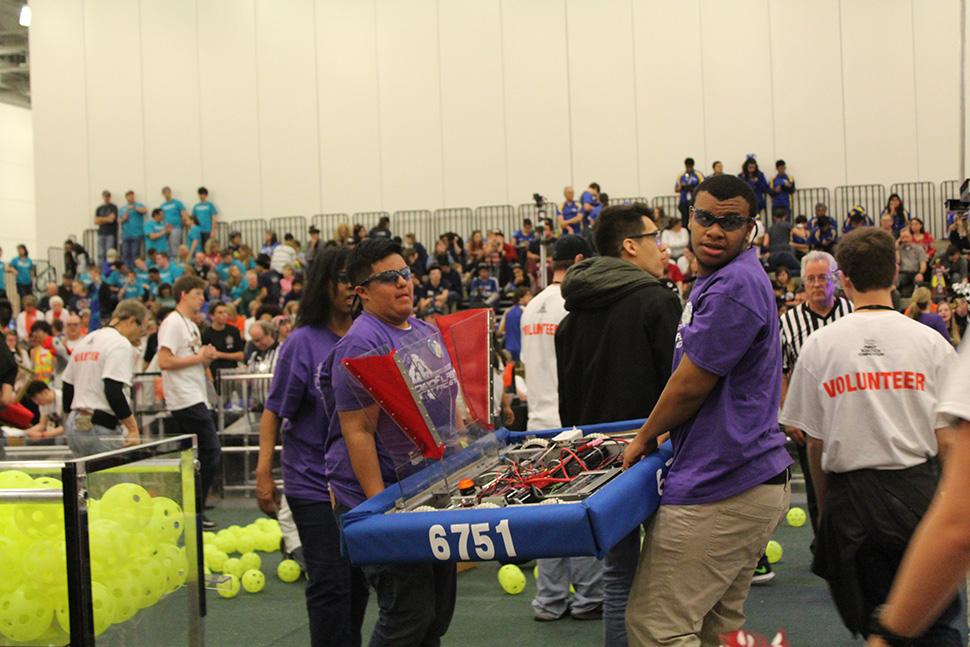
RoboFlash team members Michael Ramirez (left) and Antonio Haddon carry the robot off the playing field after a match.
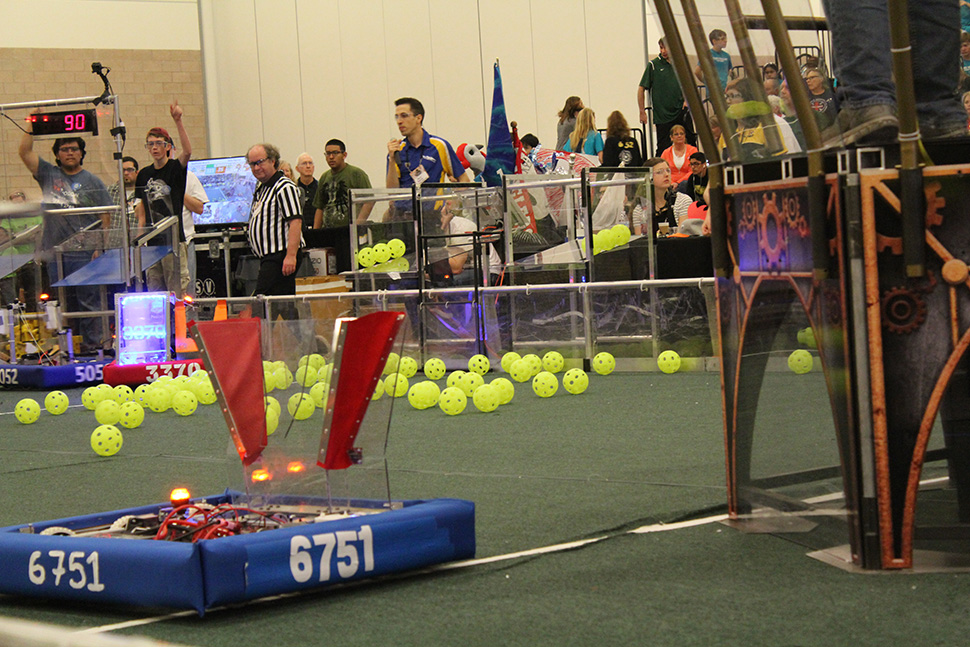
The team’s robot in action Saturday during a match at the Dallas Regional in Irving.
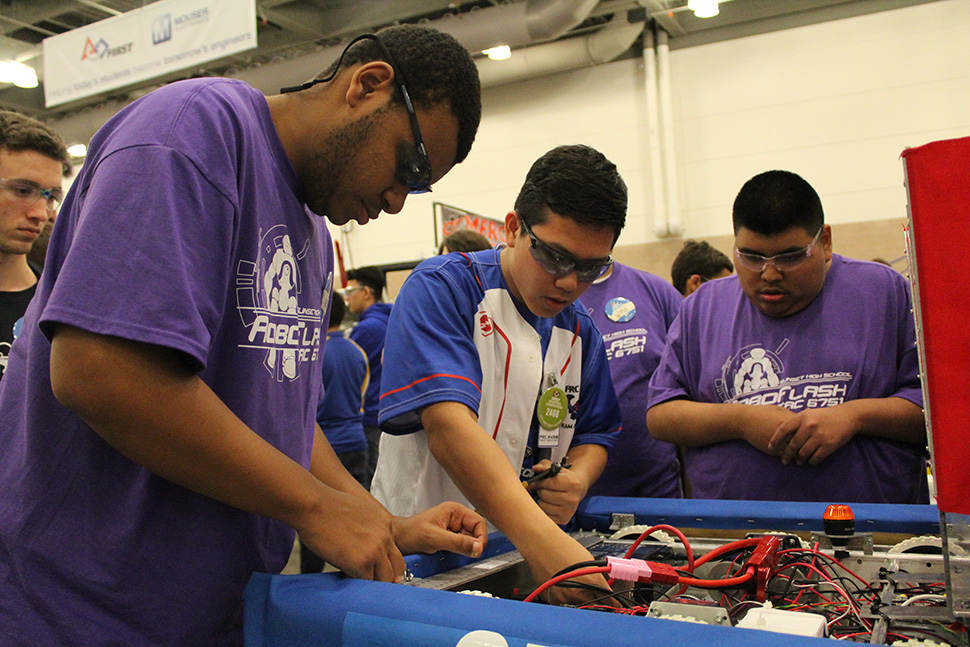
Haddon (left) and others make repairs to the robot in between matches.
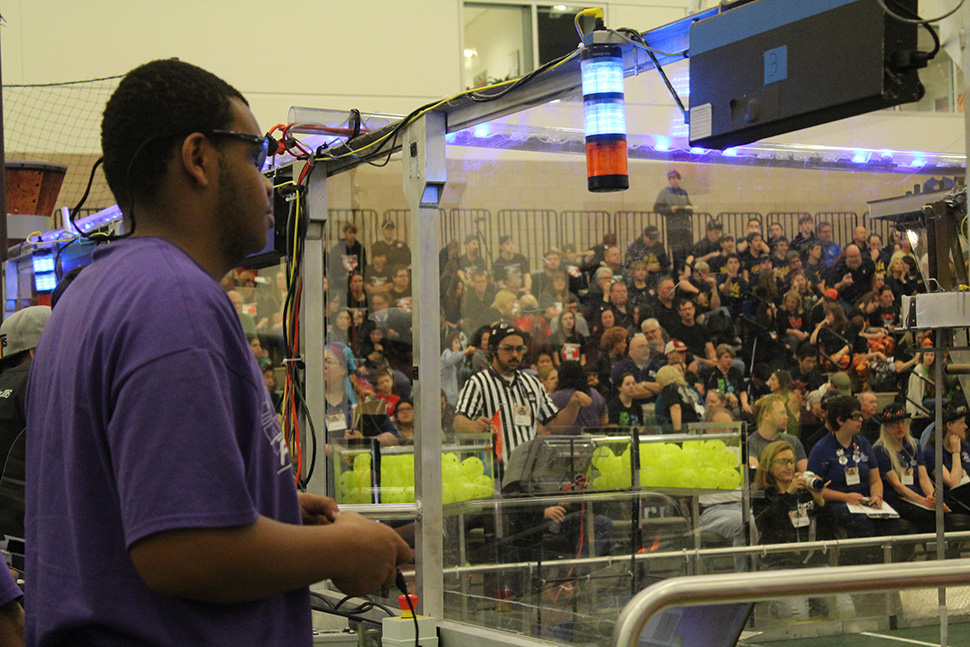
Haddon drives the RoboFlash robot during a match at the Dallas Regional.
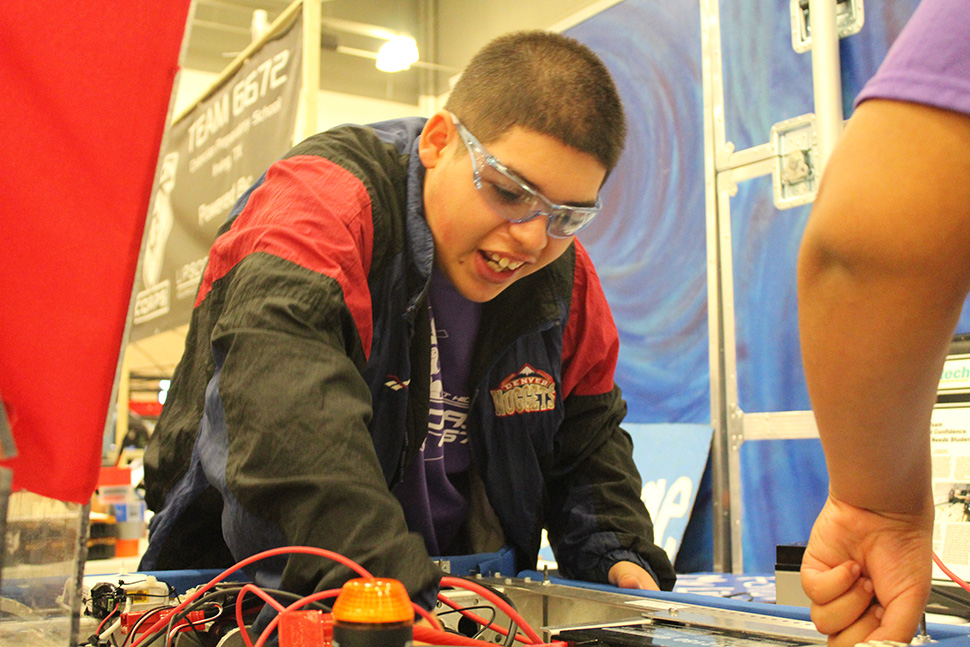
Sunset sophomore Enrique Gonzales works on the RoboFlash robot during the Dallas Regional.
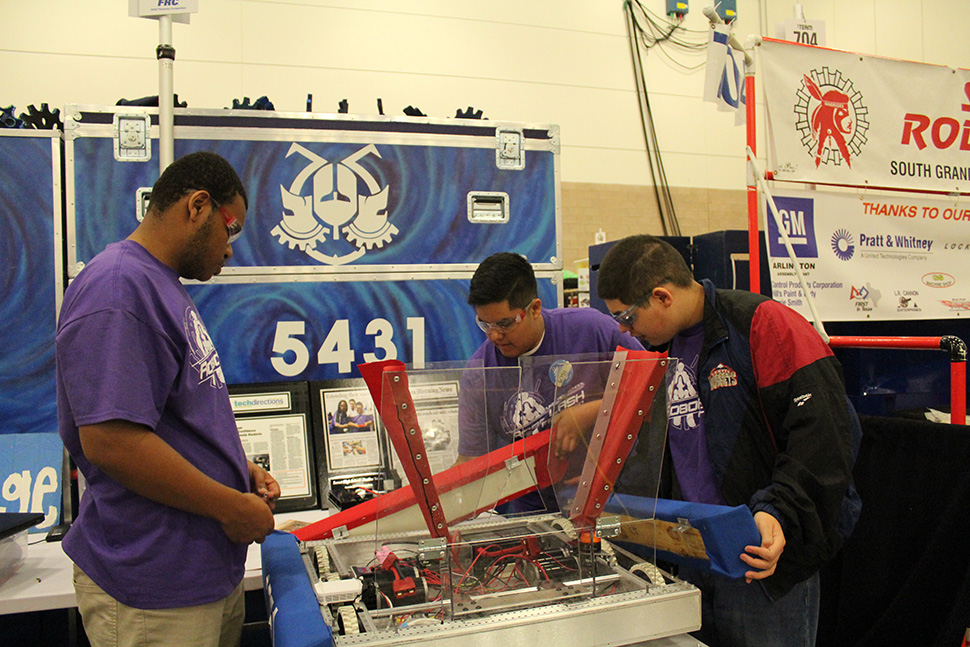
RoboFlash members change out the robot’s bumpers in between matches.
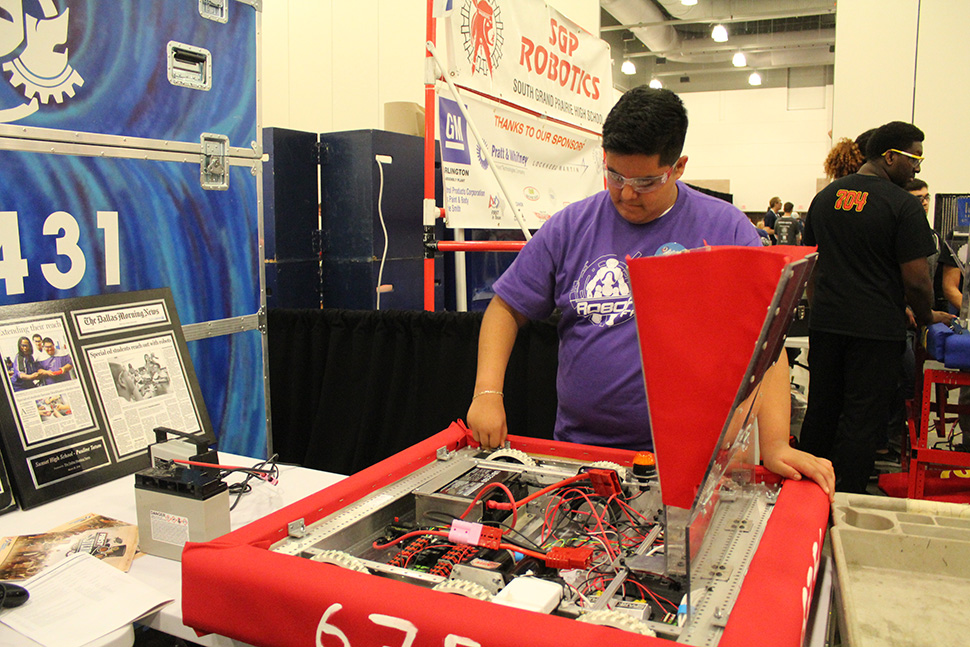
Ramirez tinkers with the robot in the pit during the Dallas Regional.
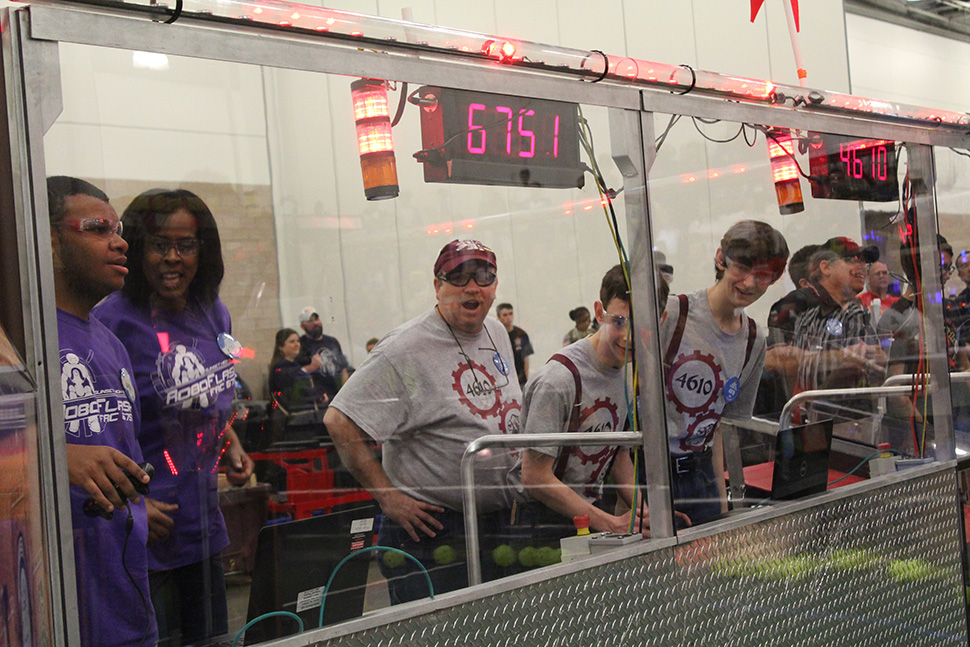
Haddon (far left) drives the robot during a match at the Dallas Regional.
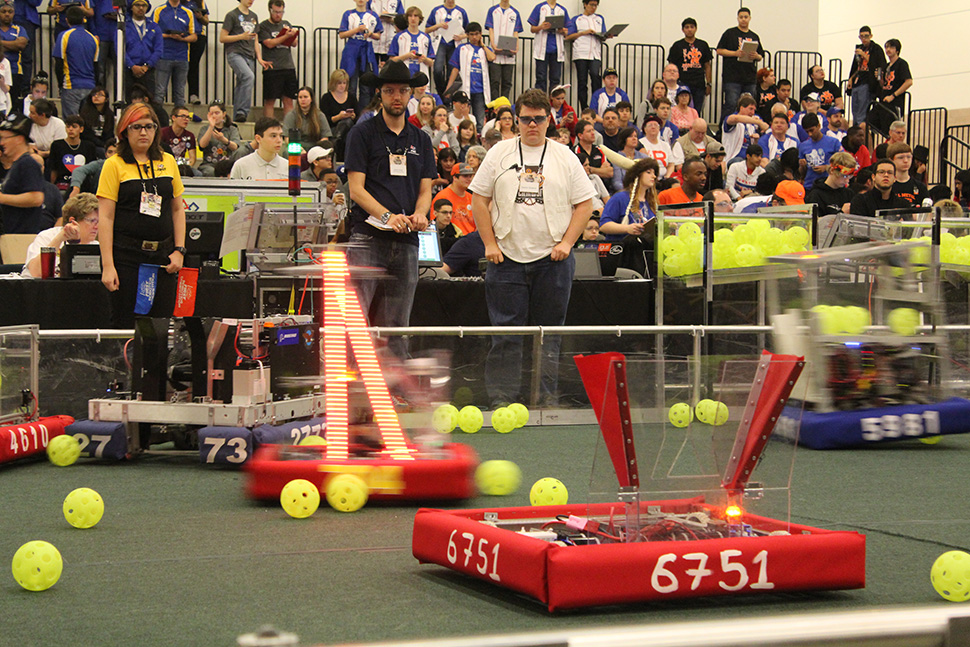
RoboFlash 6751 in action during a match at the Dallas Regional.
Delivering what’s new and next in Dallas-Fort Worth innovation, every day. Get the Dallas Innovates e-newsletter.

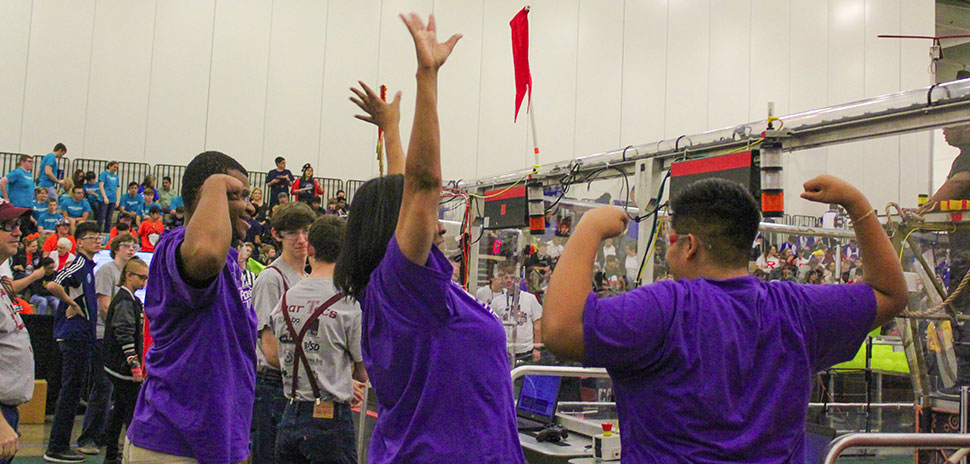
![Pudu offers many commercial service robots. Free 1-week trials of the PuduBot food delivery robot (far right above) are being offered to Dallas restaurants for a limited time. [Image: Pudu Robotics]](https://s24806.pcdn.co/wp-content/uploads/2021/11/Pudu-Robotics-970x464.jpg)

























